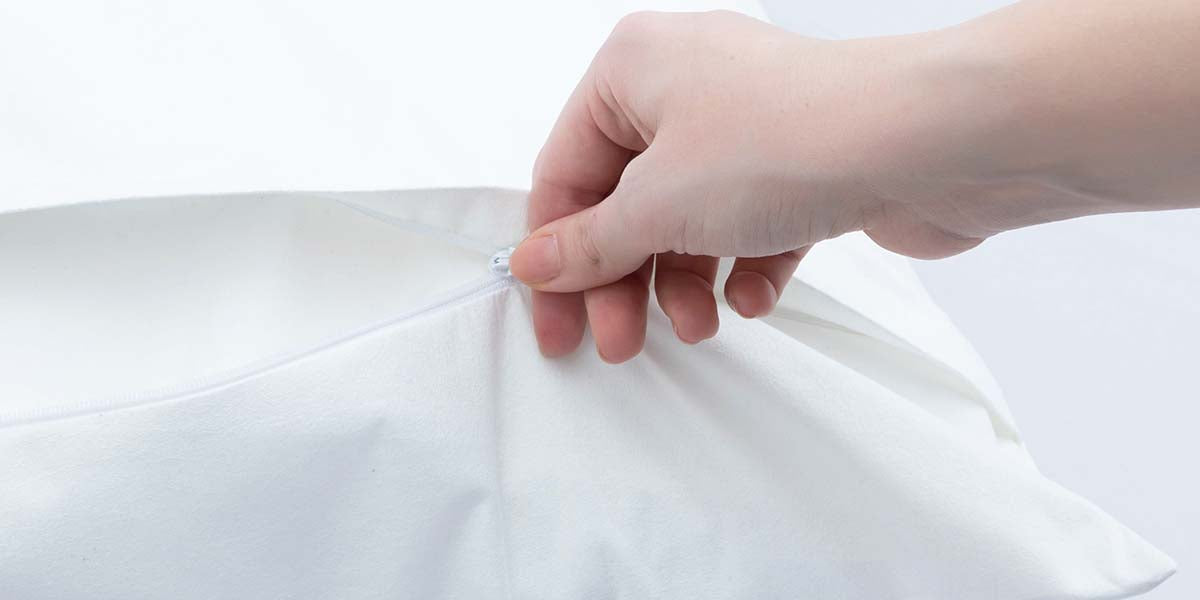What you do not know could be affecting your skin.
At AMPERNA®, we believe that truly understanding your skin is the first step toward helping it. While many people know that clogged pores, excess oil, and hormones contribute to acne, there are less obvious triggers that can quietly disrupt your skin’s balance — even when you are doing "everything right."
Here are 5 surprising acne breakout triggers that you might not expect — and what you can do about them.
1. Your Pillowcase and Towels
You might be washing your face religiously, but if your pillowcase or face towel is harboring bacteria, oil, or leftover hair products, it could be contributing to breakouts. Fabrics absorb oils, sweat, and skincare residue, which can transfer back onto your skin while you sleep or dry off.
What to do:
-
Change pillowcases 2–3 times per week
-
Use a fresh, soft towel to pat your face dry (no rubbing!)
-
Opt for fragrance-free detergents that do not irritate sensitive skin

2. Not having a balanced diet
If you are consuming a diet high in processed foods, dairy and sugar and not eating a wide range of plant-based and fiber rich foods, chances are you are compromising the overall health of your skin.
Certain foods can further promote inflammation throughout the body, and it is possible this can trigger acne breakouts.
To best nourish your skin, you need to nourish your body from the inside out and ensure you eat a wide variety of wholesome foods to promote high levels of good bacteria and not let the bad bacteria overrule.
In general, the most effective way in dealing with acne triggers is to be eating a wholesome balanced diet, rich in fresh fruits and vegetables, healthy protein sources, and whole grains.
Foods containing the following ingredients are also thought to be beneficial for the skin because they reduce inflammation:

3. Stress
You do not have to feel overwhelmed for stress to impact your skin. Even low-level or chronic stress increases cortisol, a hormone that can stimulate oil glands and trigger inflammation. Stress does not just affect your mood, it directly affects your skin’s immune function, healing ability, and oil production.
What to do:
-
Create daily stress-reduction rituals: gentle movement, journaling, mindfulness
-
Prioritise sleep and rest
-
Try supportive adaptogens or supplements, if appropriate

4. Hair and Body Products
Sometimes the products you are using elsewhere like conditioner, shampoo, body lotion, or even laundry detergent — can clog pores or irritate the skin, especially around the hairline, back, and shoulders. These products can transfer to the skin during rinsing, sleeping, or sweating, leading to “pomade acne” or body breakouts.
What to do:
-
Choose non-comedogenic, fragrance-free hair and body products
-
Wash your face after washing your hair in the shower
-
Avoid letting conditioner or styling products sit on your skin
5. Prolonged use of antibiotics
Whilst in some cases antibiotics are critical to recovering from an illness, taking antibiotics for too long can be detrimental to the colonies of your good gut bacteria. When bad bacteria overrule, it can quickly trigger a variety of skin conditions.
Your gut’s microflora is directly related to the health of your skin. When your gut’s microflora is unhealthy or out of balance your gut leaks toxins, that are then carried to your skin - resulting in breakouts. Bottom line is the healthier your gut, the healthier your skin.

If your skin is suffering ongoing breakouts, Kiri Yanchenko, founder of AMPERNA® is here to help. Kiri suffered severe health complications from stress and side effects from medication. She found by that adopting holistic principles she was able to help herself back to full health and glowing skin.
The AMPERNA® range features products that are full of anti-inflammatory anti-bacterial ingredients and contain our probiotic complex.
Acne is multifactorial — it rarely comes down to just one trigger. At AMPERNA®, we help you look at your skin holistically, taking into account not just what you apply, but how you live, eat, and care for your body as a whole.
By identifying these less obvious acne triggers, you can make smarter, gentler choices for your skin and take steps toward long-term clarity, not just quick fixes.


















